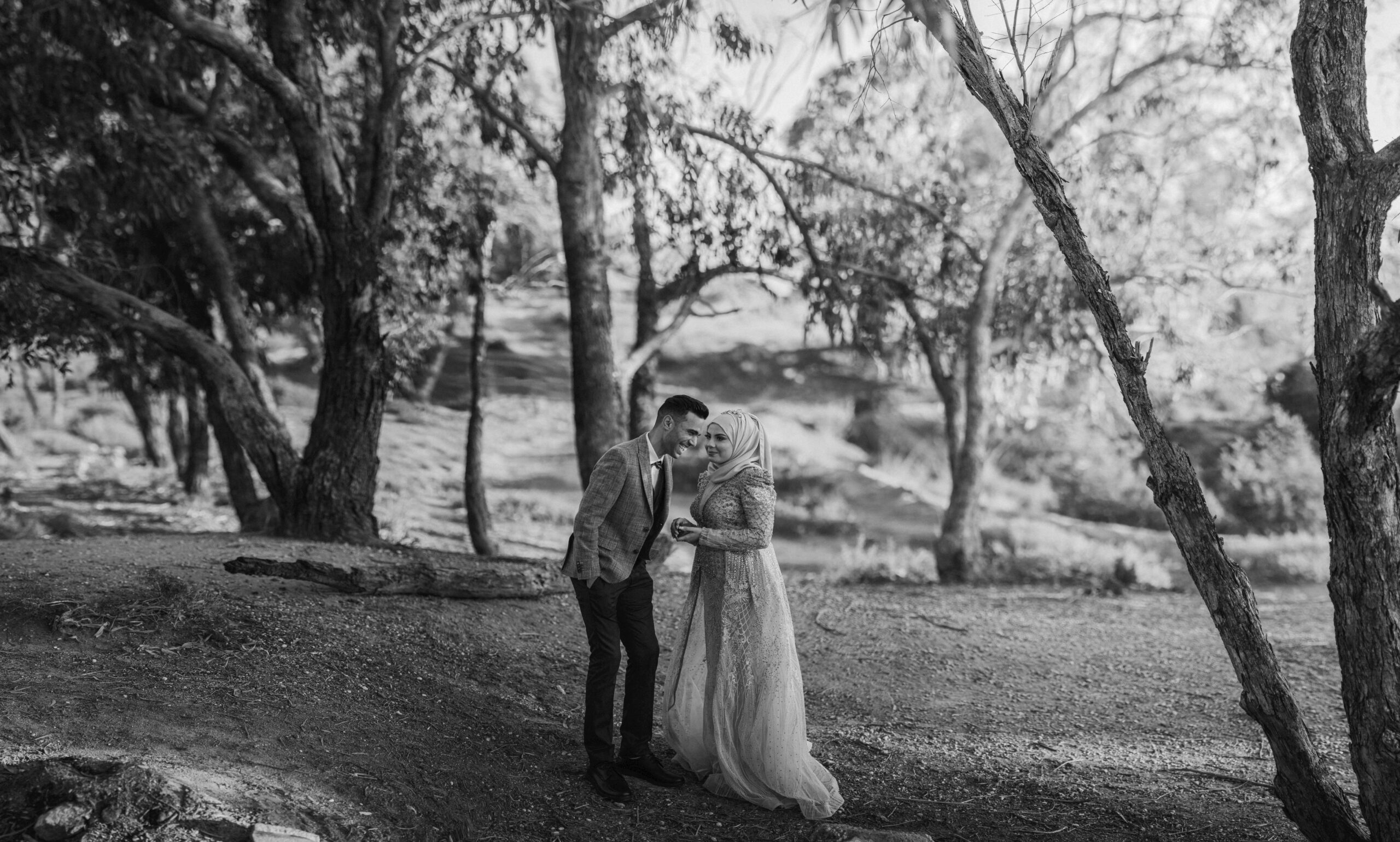The Days Leading Up to the Wedding: A Mix of Joy and Silent Fear
I always thought I’d be a beaming bride, full of laughter, swaying to music, dancing with cousins under fairy lights. But as my wedding day got closer, I felt… heavy.
Yes, people around me were excited. The conversations were full of clothes, makeup, gifts, and dates. My relatives were busy finalizing the guest list and my friends were sending me endless messages. From the outside, everything looked joyful and celebratory.
But on the inside, I was anxious—quietly, silently, painfully anxious.
I’d lie awake at night, staring at the ceiling fan, wondering how life would change. I wasn’t scared of my partner—he was kind and understanding. But I was scared of change itself. Would I fit into a new home? Would I still have my space? Would I lose the version of me that I had just started understanding?
The truth is, no one tells you that even joyful changes can feel terrifying. I was about to leave the home where I grew up, the bed where I cried silently during hard days, the mirror where I slowly learned to love myself. I wasn’t just moving houses—I was transitioning into a new identity.
And that shift, as beautiful as it is, was scary.
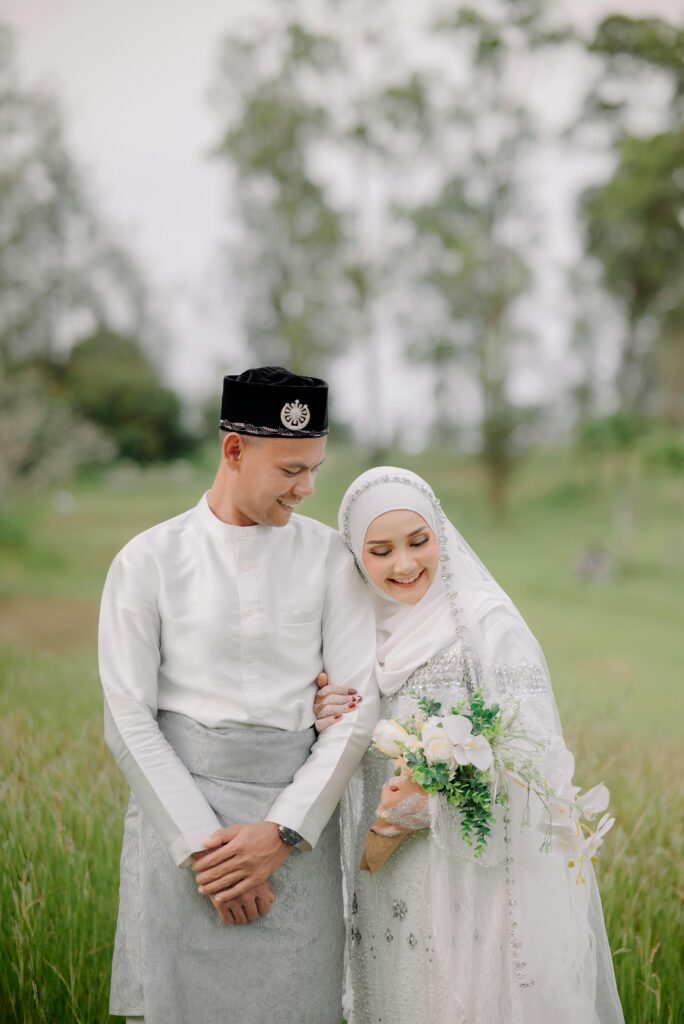
The Wedding Morning: Simplicity in Every Corner
The morning arrived, gentle and quiet. I woke up before Fajr, unable to sleep, my stomach fluttering with a mix of excitement and fear. I sat on the prayer mat, wrapped in my soft shawl, trying to calm my racing heart with du’a.
There was no chaos in the house, no music blaring from speakers, no long line of makeup artists. My mother was in the kitchen making tea, and my father was sitting on the veranda reading the Quran. My siblings were half-awake, tiptoeing around with sleepy smiles.
My wedding outfit was simple—a modest dress in soft shades, elegant but not extravagant. I didn’t want to be a bride hidden under heavy layers of fabric or drowning in gold. I wanted to feel like myself—comfortable, calm, and graceful.
My mother helped me with my scarf. Her hands were warm, but I noticed the way she paused, pretending to fix a pin while wiping a silent tear. We didn’t say much. We didn’t need to. Our silence said everything.
I glanced at the mirror. I didn’t see a fairytale bride. I saw a young woman on the edge of something big. Something sacred.
The Nikah: A Promise Made in Quiet Strength
The Nikah took place at home, in a small room decorated with soft white curtains and fresh flowers. There were no loud celebrations. Only close family, close hearts, and a sense of peace that filled the air.
I sat beside my wali, my hands resting on my lap, my fingers cold. The Qazi began the Khutbah, reciting verses from the Quran about the beauty and purpose of marriage in Islam. I had heard those words before—but today, they hit differently. They weren’t just beautiful—they were real.
Marriage in Islam is not about extravagance or public displays. It’s about mercy. About protection. About being a garment to one another—covering, supporting, and nurturing each other.
When it was my turn to say “Qubool Hain”, my voice trembled. My heart was pounding. But I said it—three times—with full awareness of what it meant.
Yes, I was scared. But I was also ready to take this leap of faith. Because I wasn’t just signing a paper. I was entering a sacred commitment—with my partner, and with Allah.
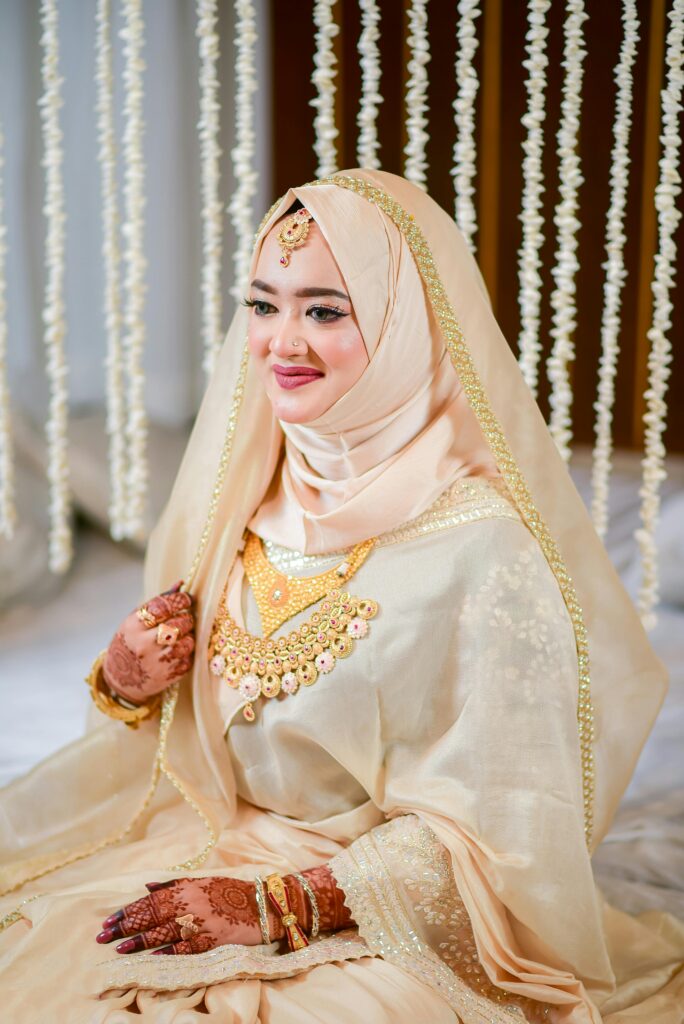
The Transition: From Daughter to Wife
After the Nikah, I greeted guests, hugged relatives, and smiled through photographs. Everyone said I looked calm, radiant even. But they didn’t see the quiet whirlpool of emotions inside me.
The Rukhsati was the hardest part. As I hugged my mother, my knees felt weak. I wasn’t ready to let go. Her smell, her embrace—it all felt like the world I was leaving behind. My father, usually strong and composed, couldn’t look me in the eye for too long. My little sibling clung to my dress and whispered, “Will you come back tomorrow?”
I didn’t have an answer.
The car ride to my new home was silent. I stared out the window, watching familiar streets pass by. I wasn’t crying. I was processing. Processing the shift, the separation, the beginning of something I couldn’t fully imagine yet.
The First Night: Where Real Life Begins
When I entered my new home, I was welcomed with soft smiles and warm greetings. My in-laws were kind, respectful, and sensitive to my awkwardness. They didn’t overwhelm me with questions or expect me to act like I belonged immediately.
Later that night, when I was finally alone in our room, I felt the full weight of the day. My body was tired, my mind exhausted. I sat quietly, unsure of what to do, how to act, or what came next.
My husband walked in, gently. He didn’t rush anything. He didn’t come with expectations. He simply sat beside me and asked, “How are you feeling?”
That simple question broke the tension I’d been carrying. I cried—not from fear, but from relief. I told him about my worries, about how scared I had been for days. And he listened—truly listened.
We talked for hours. Not about romance or dreams or the future. Just about now. About how new everything felt, and how we would figure it out together. It wasn’t a magical, perfect movie moment. It was something better—it was real connection.
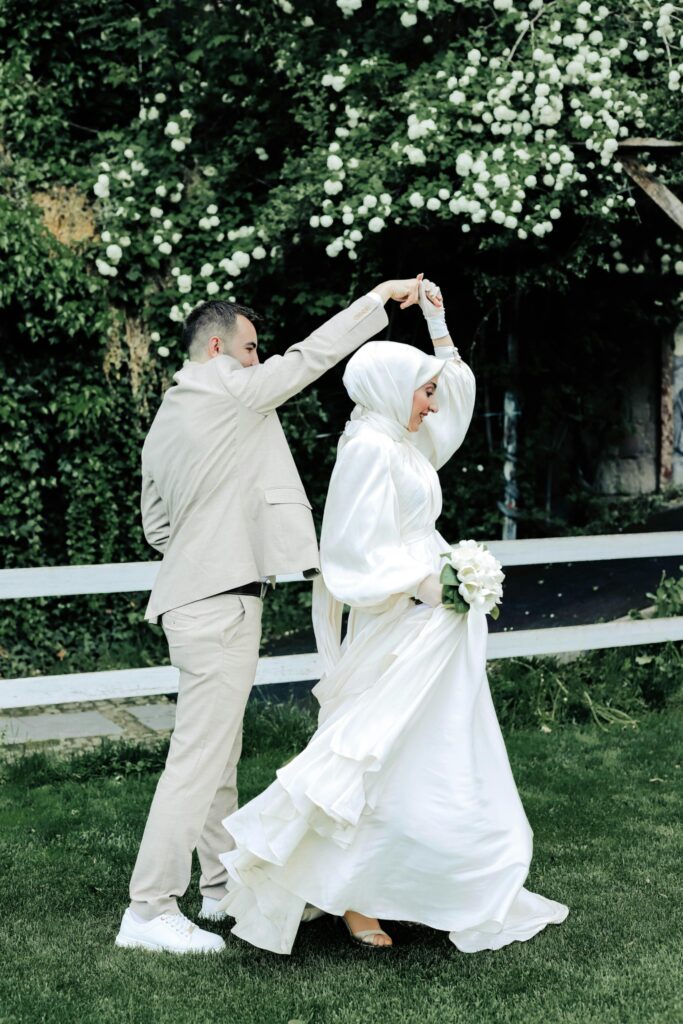
What This Simple Muslim Wedding Taught Me
In a world that celebrates extravagance, my wedding was a soft rebellion. It was rooted in faith, not flash. In meaning, not materialism.
Here’s what I learned:
1. Fear Doesn’t Mean You’re Not Ready
I thought fear meant weakness. But I’ve learned that fear often means growth is about to happen. I didn’t need to be fearless—I just needed to move forward with my fear.
2. Simplicity Can Be Stunning
No expensive decor, no professional photoshoots, no dramatic entries—and yet, every moment is engraved in my memory. The softness, the honesty, the emotions—they mattered more than anything money could buy.
3. Marriage Begins with Compassion
Marriage isn’t about instant perfection. It’s about two people creating a rhythm together, slowly. That first night reminded me that kindness is more important than grand gestures.
4. Faith Grounds Everything
Knowing that my Nikah was not just a social contract but a sacred agreement before Allah gave me strength. My heart found peace in that spiritual connection.
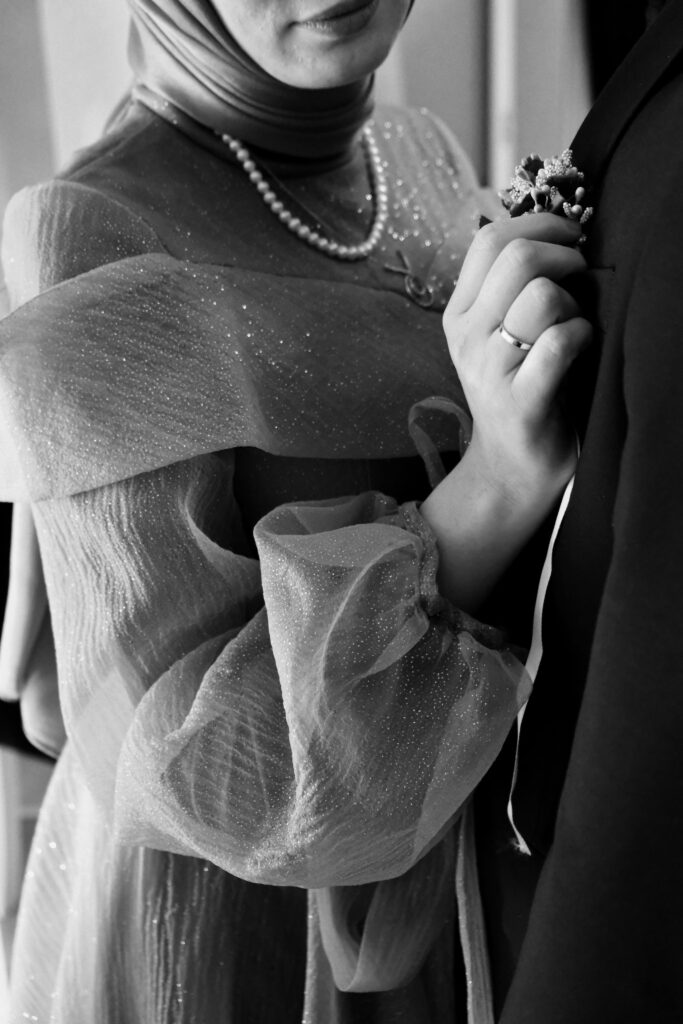
Final Reflections: A Message to Other Brides
If you’re a bride-to-be, feeling a mixture of excitement and anxiety, I want to tell you—you are not alone.
It’s okay if your wedding is small. It’s okay if your heart feels heavy. It’s okay if you’re not glowing with joy every second. You’re human, and this is a big change.
But remember this: you are stepping into something beautiful. Not because of your dress or your venue—but because you are beginning a journey of love, growth, and faith.
I didn’t become someone else on my wedding day. I became more of myself. Stronger. Softer. Wiser.
My simple Muslim wedding didn’t go viral on Instagram. But in my heart, it was everything
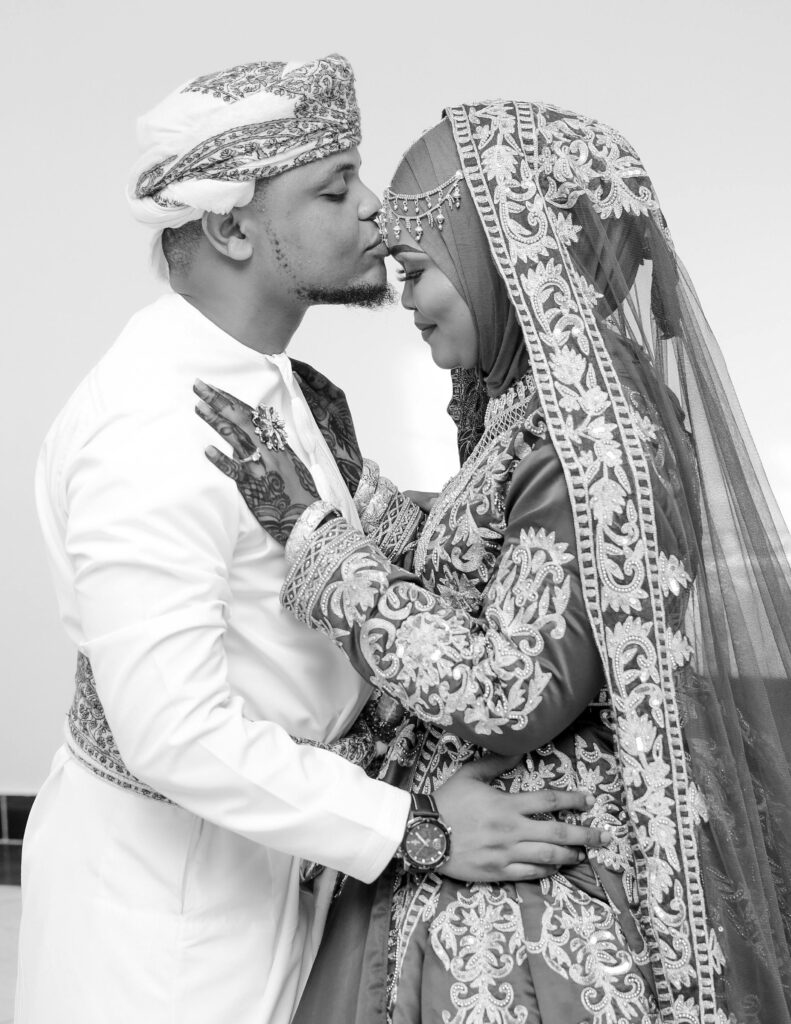
FAQ: Simple Muslim Wedding Experience
Q1: Is it okay to have a small, simple Muslim wedding?
A: Absolutely. In Islam, the focus is on the Nikah (marriage contract) and its spiritual significance. Simplicity is not only acceptable—it is encouraged. A small wedding with sincere intentions is often more meaningful than a large, expensive celebration.
Q2: I’m scared before my wedding. Is that normal?
A: Yes, it’s completely normal. Many brides feel fear, anxiety, or even sadness before marriage. You’re stepping into a new chapter, and it’s okay to feel emotional. What matters is acknowledging those feelings and giving yourself time to adjust.
Q3: How did you mentally prepare for the transition from daughter to wife?
A: I focused on my relationship with Allah and reminded myself that this step was part of His plan. I allowed myself to feel everything—fear, grief, excitement—and shared those emotions with my husband after the wedding. Honest communication helped me ease into the new role.
Q4: How do you make a simple wedding feel special?
A: Through intention and presence. You don’t need a fancy setup to make it memorable. Dress comfortably, include meaningful duas, and surround yourself with loved ones. Simplicity lets you focus on what truly matters: love, family, and faith.



